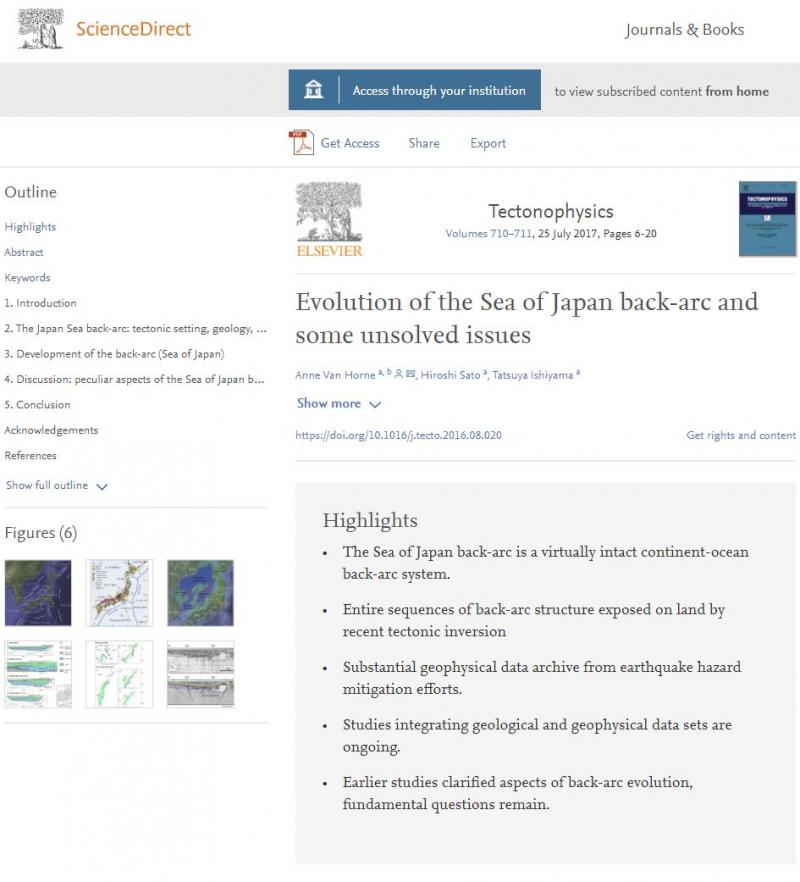|
| 서한 |
시정서한 |
|
| 매체 |
웹사이트
|
|
| 이슈 |
동해
|
|
| 언어 |
영어
|
|
| 서한보내는곳 |
https://service.elsevier.com/app/contact/supporthub/mendeley/ |
|
| 오류내용 |
오류 내용 동해를 Sea of Japan 으로 표기함 |
|
| E-mail / Contact |
ashleylsylee@gmail.com |
|
서론 |

To Ms. Von Horne:
On
September 24 I was looking at articles about seismic activity in and around Korea
for a school paper and happened on your site https://www.sciencedirect.com/science/article/abs/pii/S0040195116303547#!
and
was deeply distressed to find that you have chosen to name designate the East
Seas as ‘Sea of Japan.’It seems extremely inappropriate and frankly appalling,
that a journal dedicated to seismic activity near Korea would be so ill
informed to blatantly use such designation with complete lack of regard for the
dispute between the Korea and Japan. Especially as this is an educational site,
I believe that anything published here should be better aware of the political
implications before posting such article; it is frankly offensive and greatly
insensitive.
|
|
| 본론 |
For more than 2,000 years, not just Koreans, but people throughout the
world, viewed the body of water on the eastern boundary of Asia between Korea
and Japan as the East Sea. In order to resolve the controversy, in 2019, the
International Hydrographic Organization (IHO) reportedly urged Japan to
negotiate with the Republic of Korea. The IHO was founded in 1921 to
standardize the names of seas and oceans and support safe navigation of ships.
The name the East Sea was on world maps, including old Japanese maps, until the
publication of S-23 “the Limits of Oceans and
Seas” by IHO in 1929. The IHO and UNCSGN both agree, in case of
topographical feature shared with two or more countries, yet naming differently
in their own languages, all the names in each language should be
marked. Once Korea and Japan agree on a common designation that is in
accord with the general rule of international cartography we will then follow
the agreed-on designation.
The correct use of the names for the body of water between Korea and
Japan is not simply a question of naming a geographic area but is part of a
national effort by the Korean Republic to erase the legacy of Japanese
Imperialism and to redress the unfairness that has been resulted from that
period. The way African-Americans were enslaved, so was the Korean people.
Therefore, I urge you to use 'East Sea' to describe the body of water in
question or to use both Korean and Japanese designation simultaneously (e.g. 'East
Sea/Sea of Japan') in your contents and maps.
|
|
| 결론 |
It is extremely
inappropriate and frankly appalling, that a company of your caliber would be so
ill informed to be so insensitive to the implication of such a mistake in a
worldly publication. I believe that any
article involving the activities near the coast of the East Sea should be sensitive to
the plight of Korea. Even as the world is ravaged by not only by Covid-19, but
racial injustice and discrimination, it is imperative that matters pertaining
to international guidelines be meet more rigorously. I ask that you contact me
with changes and look forward to visiting your site with the implemented change.
You can email me at ashleylsylee@gmail.com with your response,
it would be greatly appreciated. Thank you.
Sincerely,
Ashley Lee |

